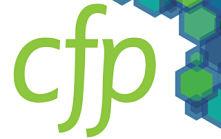Retailer sees NGO programme as extension of broader chemicals management strategy
Target has become the most recent major retailer to join the Chemical Footprint Project (CFP), a programme managed by the NGO Clean Production Action that helps signatories measure their chemical management work.
According to its website, the CFP tracks, disseminates and benchmarks corporate progress to safer chemicals in products, manufacturing and supply chains. It has more than 70 signatories, including investors with more than $2.78tn in assets under management, as well as healthcare systems, group purchasing organisations and retailers with over $700bn in purchasing power.
Mark Rossi, executive director of Clean Production Action, counts Target as an important addition because “retailers play a critical role in translating and communicating the sustainability preferences of consumers.”
“It signals to its private label suppliers and brands that they need to report their chemical management policies, practices, and procedures to an independent third-party organisation that will benchmark their performance to peers,” Mr Rossi told Chemical Watch.
For Target, its participation in the CFP and its survey is another step forward in its focus on chemical management.
Jennifer Silberman, vice president of corporate responsibility for the retailer, told Chemical Watch: “Our work with the Chemical Footprint Project is an extension of our chemicals strategy and policy created in 2017 – a retail first in the industry – that addresses our entire value chain.”
Target’s chemicals strategy is multi-pronged, and includes using hazard profiles, restricted substances lists (RSLs) and manufacturing restricted substances lists (MRSLs) to better control potentially harmful substances.
The company also has set goals to:
- achieve transparency of all ingredients, including generics such as ‘fragrance’, in beauty, baby care, personal care and household cleaning formulated products by 2020;
- remove from textile products added perfluorinated chemicals (PFCs) and flame retardants that are potentially harmful or carcinogenic by 2022;
- improve beauty, baby care, personal care and household cleaning product categories by formulating without phthalates, propyl-paraben, butyl-paraben, formaldehyde, formaldehyde-donors, or NPEs by 2020; and
- invest up to $5m in green chemistry innovation by 2022.
Walmart and Staples are already signatories to the CFP. Mr Rossi said he is encouraged that major retailers seem to be setting an example.
“We see the combination of Target and Walmart’s leadership, the Mind the Store campaign retailer report card [from NGO Safer Chemicals, Healthy Families], and investor concerns all acting symbiotically to drive increased retailer engagement in the Chemical Footprint Project Survey,” he said.
Other recent CFP signatories include:
- business collaborative the American Sustainable Business Council (ASBC);
- healthcare organisation Blue Cross Blue Shield of Massachusetts;
- investment firms Figure 8 Investment Strategies; JLens Investor Network; and Signity Financial;
- the nonprofit Safety and Health Technology Center (Sahtech).

